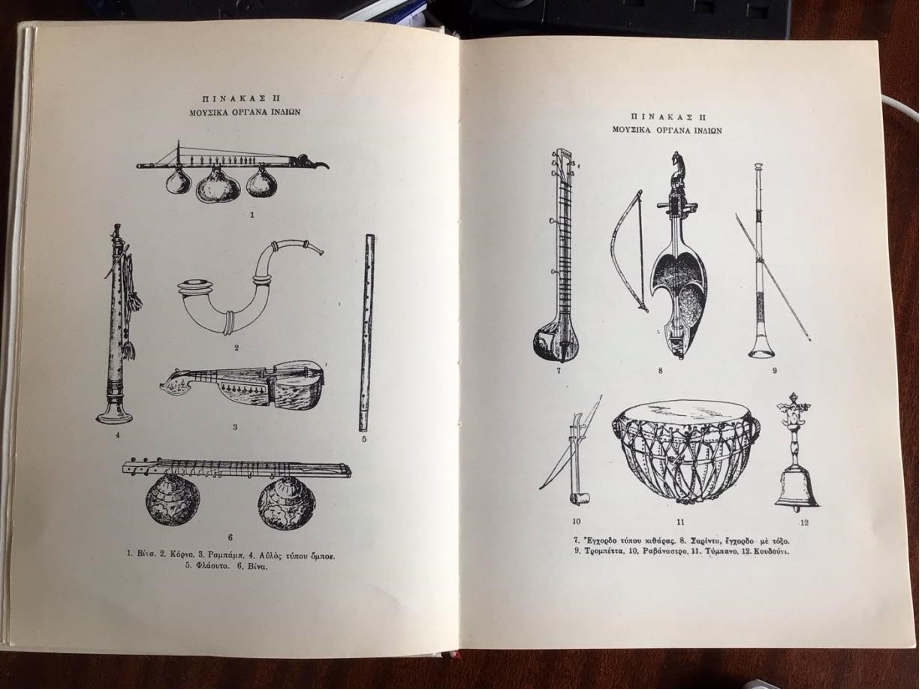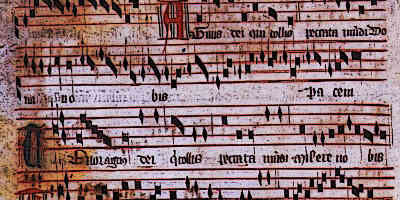Origin
of Music

We learned about the name but how did music start?
The question about the origin and appearance of music has always been an issue among philosophers, musicologists and historians. Many studies have been done and many theories have been formulated up to today. As a final conclusion, it seems that music is completely connected with man.
Music in ancient civilisations

China
Thousands years ago, the Chinese have cultivated music with great care. From the 5th millennium BC (4,500 BC), as various sources inform us, music was part of their philosophical system and served for the good administration of the state. That is why its composition was initially the exclusive privilege of the emperor.
Both in the formal court life and in the daily life of the people, parades, funeral processions, etc., music played a very important role. Based on acoustics, the Chinese defined the tonal system we still use today.

India
From the Vedas, their sacred books, as well as from their sculptures and paintings, we learn that Indian music was closely intertwined with their cosmological and religious beliefs. United with speech and dance, it was a privileged priest and of the upper social classes, without this hindering the development of a purely folk music.
It is characteristic that the musical instruments of the Indians present a great variety and remain the same for about 3,000 years.

Egypt
Although no theoretical books or signs of musical notation have survived, the rich illustration of the royal tombs, paintings, sculptures, vases, etc., and especially the flutes that were found inside them, give us a clear idea of Egyptian musical culture.
As in China, so in Egypt, music was closely intertwined with all aspects of life. In the temple, Pharaoh himself, the supreme religious and political ruler, sings religious hymns. At palace ceremonies or folk festivals, music set the tone and joy. Also in many performances we see the song accompanying various activities.

Israel
Few peoples were as distinguished for their love of music as the Jews. Because their religion forbade images, their worship needs found a way out of music and poetry, which they developed. Moses (Genesis, IV, 21), calls Jubal “father of all guitar and flute players”.
The Psalms are real songs. We have no information about the composition and architecture of Jewish music and only in comparison with Greek music, we can imagine some things. The Jews apparently had no musical notation. However, the need to preserve their musical tradition, forced them in the 9th to 10th century AD. to create a kind of name.
Source: History of Music by Karl Nef

The latest studies on the music of primitive civilisations, as well as the findings of excavations from the Stone Age, convince us of the existence of musical events in the primitive community. Primitive man is fortunate to have a wonderful musical instrument: his voice. Thus it is possible that the first cries as an expression of communication, joy, pain, etc., contain a rudimentary musical character. So vocal music seems to precede even the most basic organic.
Of course, someday the primitive man begins to accompany his song with the clapping of his hands. So here is the first percussion instrument! Later, blowing a hollow rod that falls into his hands comes in contact with the sound of wind instruments. Finally, the string of the bow that buzzes next to his ear, when he goes out hunting, reveals to him the world of strings.
After several thousand years and man is freed from magic, religion and education later influence the evolution of music, which takes a prominent place in rituals and becomes a musical art, which accompanies man from time to time, offering aesthetic satisfaction in his spiritual world.
